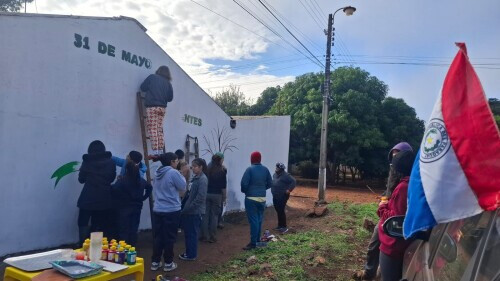
Until recently, I was unaware of the very existence of the word "sentient." I encountered this term through the ruling of a legislative committee that analyzed a bill recognizing animals as sentient beings. "Sentience" refers to the capacity of a living being to experience emotions and have emotional responses. In other words, a sentient being is one that can feel and perceive the world. This concept can be usefully applied to define and punish animal cruelty and abuse.
Perhaps I was stimulated by this unfamiliar term. Senator Ignacio Iramain called Dario Filártiga, who has been nominated as the next Paraguayan Ambassador to Taiwan, an "insentient human" and pointed to his past. He mentioned that Filártiga was a crucial member of the violent oppressive structure of the dictatorship, serving as secretary to Sabino Augusto Montanaro, the Minister of Interior under the Stroessner regime and an object of terror from 1966 until the overthrow of the regime.
It's impossible to know whether Ambassador-designate Dario Filártiga is truly a sentient being or not. However, it's clear that he is a resilient individual. He has emerged from various adversities, and those adversities have, ironically, led him to better positions. Of course, he was not a torturer. But he held a key position in the Ministry of Interior. He was a central figure in the very place where the fates of hundreds of political prisoners were decided, where the bodies of those executed or killed by torture were buried, and where intelligence activities against the opposition were planned. Therefore, he must have been intimately familiar with the brutal atrocities of the Stroessner regime.
It's highly unlikely that such an individual would seek forgiveness from victims or reveal where the remains of the disappeared are buried. His loyalty to the dictator was so strong that in 2006, he was even one of the speakers at Stroessner's funeral in Brasília. The "impunity" that characterized Paraguay's democratic transition posed no hindrance to him. On the contrary, during the government of González Macchi, he was appointed director of the Social Security Institute (IPS).
He stayed at the IPS for a very short period and had to resign amidst numerous allegations of corruption, the hiring of hundreds of party members, and suspicions of so-called commissions. He was acquitted by the judiciary, but since then, he and his wife, Giselle Musques, have been unable to shake off the labels "Chico 10" and "Madam 20." The reason for these nicknames is unknown, but they have not been free from that stigma.
Dr. Aníbal Filártiga, Dario Filártiga's cousin, commented on his tenure at IPS in 2018: "We were both at IPS. He was there for 11 months and had to leave due to irregularities. I was there for 15 days because I couldn't tolerate even the first irregularity. We have diametrically opposing philosophies on honesty and public service. When I am confused with him, I feel deeply insulted."
Dario Filártiga became the legal representative for the Colorado Party at the Electoral Justice Tribunal (TSJE), and in 2013, it was revealed that his wife was receiving approximately 6 million guaraníes from the same institution. This scandal forced her to resign, but by then, he was already one of President Horacio Cartes's key political advisors.
His influence was so great that in a 2016 interview with Patricia Vargas, then-opposition Senator Juan Carlos Galaverna said, "The number one person whispering in the President's ear is Dario Filártiga. He has pushed aside other political sycophants and even Cartes's managers, seizing control of the President's political will. His constant presence has made him a professional courtier."
At that time, Filártiga had 14 soldiers stationed at his home, whose duties included picking up his wife's dresses from the dry cleaner. For a couple who had safely navigated through greater controversies, this was merely a minor scandal. Therefore, I believe that the criticisms raised by the very few genuine opposition members during the ambassadorial nomination process will have no effect on him. They called him a "pyrague" (informer), "public extortionist," and "moral perpetrator of torture," but this was a "Quincho" (the President's will) decision. He will elegantly depart for Taiwan. Our Taiwanese brothers will forgive us.
The fact that figures like Dario Filártiga still hold important positions in Paraguay's political landscape clearly demonstrates how deep the shadows of the unaddressed past remain even after democratization. The remnants of the Stroessner dictatorship are still pervasive throughout Paraguayan society, signifying that the principles of justice and accountability have not been properly established. This is why the criticism of an "insentient human" comes across not merely as an assessment of an individual, but as a symbolic expression revealing the moral insensitivity of Paraguayan politics as a whole. It reminds us of the lesson that without thorough truth-finding and punishment of those responsible for past atrocities, true democratic development and national reconciliation are difficult to achieve.
[Copyright (c) Global Economic Times. All Rights Reserved.]



























